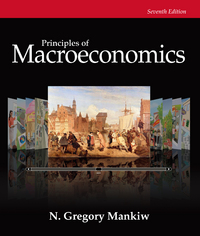Answered step by step
Verified Expert Solution
Question
1 Approved Answer
Willy and Arthur live together in an apartment and both work from home as phone salesmen. Willy gets paid commission of $24 per sale and
Willy and Arthur live together in an apartment and both work from home as phone salesmen. Willy gets paid commission of $24 per sale and Arthur gets paid $39 per sale. They can create sales over the phone (landline) and via email. One day, the power to their apartment is cut, so they use a backup generator, however the generator's capacity is limited. Willy and Arthur need to each plug in their phone to call potential clients, or their computer to email. With their phone plugged in, either Willy or Arthur can make 10 sales in the day. If they have their computer plugged in, they can make 4 sales via email. If they have both plugged in they can make a total 14 sales that day. However, the generator can only handle 3 devices plugged in. If all 4 devices (both computers and both phones) are plugged in, the generator will short out and there will be no power (and therefore no sales) that day. How many Nash equilibria are there in the game where Willy and Arthur each decide whether to just plug in their phone, or both their phone and computer for the day
Step by Step Solution
There are 3 Steps involved in it
Step: 1

Get Instant Access to Expert-Tailored Solutions
See step-by-step solutions with expert insights and AI powered tools for academic success
Step: 2

Step: 3

Ace Your Homework with AI
Get the answers you need in no time with our AI-driven, step-by-step assistance
Get Started


